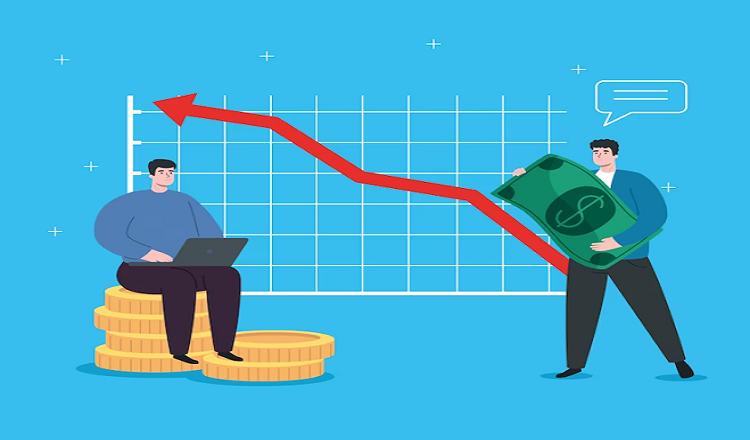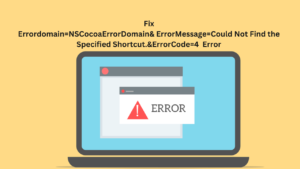Inflation causes and its long-term effects

Inflation is like a sneaky thief who steals the value of your money slowly while you’re not looking. It has an effect on the economies of countries all over the world, and the U.S. is no different. Inflation is the rate at which prices for goods and services go up over time. This makes money less valuable because it can’t buy as much. Understanding what causes inflation is important if you want to save, trade, and spend your money wisely.
Inflation has become a popular topic of conversation in the United States in recent years, when inflation rates have been higher than normal. Inflation can have both short-term and long-term effects on the economy. People, companies, and the government can all feel the effects. It’s important to know what causes inflation so that you can better predict what it will do and what might happen as a result. In this blog, we’ll talk about what causes inflation in the United States, as well as its long-term effects on the economy and how it affects people and businesses. So, get ready to learn about inflation, which is a sneaky thief.
What makes prices go up?
There are a lot of different things that can be blamed for inflation in the United States. One of the most important things is monetary policy, which is what the Federal Reserve does to control the amount of money in circulation and the interest rates. When the Federal Reserve adds more money to the economy or lowers interest rates, it can make people spend more and raise demand, which can cause prices to go up.
Supply chain problems are another cause of inflation. These problems have been especially common during the COVID-19 outbreak. When there are problems in the supply chain, there may not be enough goods to meet demand. This can cause prices to go up because there are fewer goods to go around.
Consumer desire also makes a big difference in inflation. When there are more people who want things and services than there are who can get them, prices can go up to meet the demand. This can happen when people have more money to spend because they have more money in their pockets.
The Consumer Price Index, which tracks the average change in prices over time for goods and services, has gone up by 4.2% in the USA as of April 2021, according to data from the Bureau of Labour Statistics. This rise can be explained by a mix of the things we’ve talked about so far.
What happens to the economy when prices go up?
The effects of inflation on the US economy can be big, both right away and in the long run. In the short run, inflation can have an effect on many parts of the economy, such as consumer spending, interest rates, and jobs. As the prices of goods and services go up, people may spend less, which could lower demand and slow the growth of the economy. High inflation can also cause interest rates to go up, which can make borrowing and investing less attractive.
Long term, inflation can have a big effect on the growth and progress of the economy. When inflation is high and stays high for a long time, funds and investments lose value, which makes consumers and investors less confident. This can lead to less spending, slower economic growth, and a lower standard of living in the long run. Also, inflation can make the financial markets more uncertain and volatile, which makes it hard for businesses to plan and spend for the future.
What happens to consumers when prices go up?
Inflation can have a big effect on people in the United States, especially on their ability to buy things. When prices go up, the same amount of money can buy fewer goods and services. This means that money has less buying power. This can make people and families have to cut back on spending or use their funds to make ends meet. This can lower their standard of living.
Inflation affects different income groups in different ways. People with less money to spend may feel the effects of inflation more than people with more money to spend. On the other hand, families with more money may be able to handle price increases without being affected as much. For example, rising food and petrol prices can hurt lower-income families more because they may spend more of their money on these things. Overall, inflation can have a big effect on how well people and families can afford to live, especially those with smaller incomes.
What happens to businesses when prices go up?
Inflation can have a big effect on businesses in the United States, especially on their ability to make money and compete with other companies. When the prices of goods and services go up, businesses may have to pay more for things like raw materials and labour, which can cut into their profits. Also, it might be hard for businesses to keep their prices competitive, and they might have to raise prices for customers, which could make people less interested in their goods or services.
Energy and agriculture, two businesses that rely heavily on commodities, are especially vulnerable to the effects of inflation. When input costs go up, it can be hard for businesses to make enough money to stay in business. Small businesses may also feel the effects of inflation more strongly because they may not be able to handle price increases as easily and may find it hard to pass them on to customers. Overall, inflation can be a big problem for businesses in the United States, especially those in fields with high costs of goods and services.
How the government deals with inflation
When it comes to controlling inflation in the US, the government is very important. Inflation can have a big effect on the economy, and the government has a number of ways to deal with inflationary forces. The government uses monetary policy, which includes changing interest rates to change how much it costs to borrow and spend in the economy, as one of its main tools to control inflation. The Federal Reserve, which is the governing bank of the United States, is in charge of putting monetary policy into action.
The government can control inflation in more ways than just with monetary policy. It can also use economic policy. This includes changing taxes and government spending to affect the amount of economic activity and total demand. For example, to slow down the economy and stop inflationary forces, the government might raise taxes or cut spending. Overall, the US government has a number of policy tools it can use to control inflation and keep the economy stable.
Conclusion
Inflation is a major economic problem that affects people, businesses, and the US economy as a whole in many ways. In this article, we talked about what causes inflation and what affects it has, as well as how the government can use different policy tools to control inflation.
We’ve seen that inflation can have both short-term and long-term effects on different parts of the economy, such as customer spending, interest rates, employment, and the profits of businesses. Also, inflation affects different income groups in different ways, with lower-income families being more likely to be hurt by rising prices.
The future of inflation in the United States is still unknown. Together, the ongoing problems in the supply chain and the government’s spending habits have made people worried about the possibility of higher inflation in the near future. The government has a number of tools to control inflation, but it’s still not clear how well these tools will work.
Overall, it’s important for people and businesses to keep an eye on the market and make changes as they come up. By staying educated and taking action, we can lessen the effects of inflation on our finances and make sure that we and future generations will have a stable economy in the long run.
Read More You May Like:







